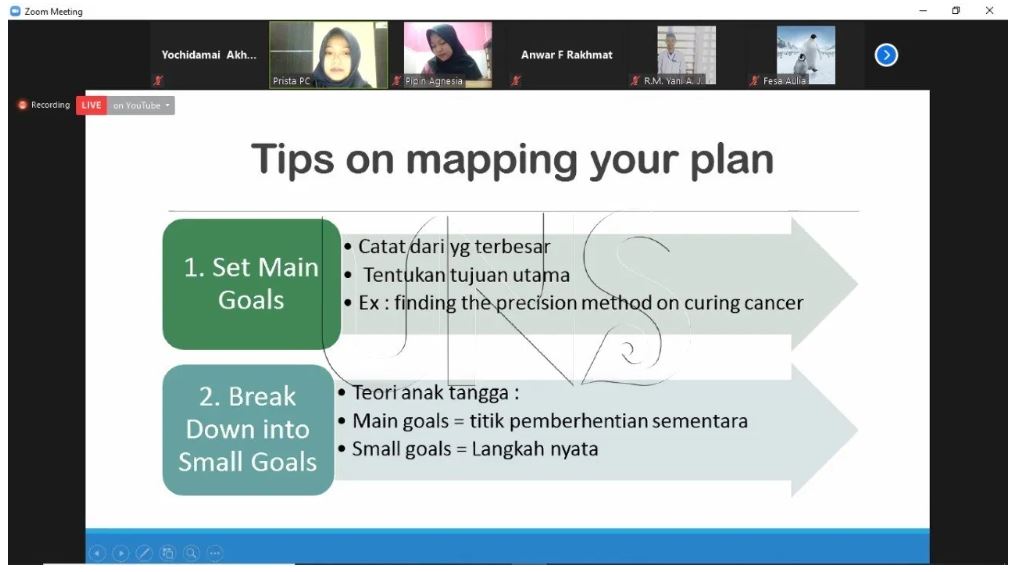
UNS FMIPA Biotechnology Study Club Increases Student Interest in Research
FMIPA UNS – Biotechnology Study Group, Faculty of Mathematics and Natural Sciences (FMIPA) Universitas Sebelas Maret (UNS) Surakarta held a webinar with the theme ‘Ready for Achievement Through Biotechnology Research’. The activity took place online through the Google Meet application on Saturday (25/7/2020) which was attended by around 50 participants. In the event, the Biotechnology Study Group presented Biology FMIPA UNS alumni, Prista Kusumaningtyas H., S.Si, and Bandung Institute of Technology (ITB) alumni, Anwar Fauzi Rakhmat., S.Si. as a speaker.
This webinar aims as a means to encourage the scientific thinking spirit of Biology students, FMIPA UNS. In addition, it is also to prepare students to take part in the Student Creativity Program (PKM) or research grants with the theme of biotechnology.
Anwar Fauzi Rakhmat said that the topics of biotechnology that continued to develop included the environment, energy, food security, and health. In building research, a good idea is needed to make the research more interesting. Research ideas can be done by exploring ideas, seeking information, focusing, keeping on track, research questions, and so on.
“Point concerns of biotechnology research are the use of genetics such as the manufacture of GMOs and designing babies, the use of genetically engineered products such as transgenic plants, stem cells, and testing. In addition, the implications must be reviewed, whether later our research can affect the existing industries or not. Then the cost must also be considered, biotechnology research usually produces products, whether the products produced will have an expensive price or can be affordable for agencies or the community, “he explained.
Anwar also said that in overcoming the problem of research funding, it could be overcome by participating in PKM. In addition, there are usually institutions or companies that fund research such as the Tanoto Foundation. Students can also take part in competitions where there will be funding to conduct research.
In the material presented by the second speaker, Prista Kusumaningtyas conveyed how to get ideas in the research that had been done. He conducted research on lung cancer taken from urine samples of patients.
“When doing research on collaboration, there are several ethics that must be done, including contacting and introducing, so you must have prepared the ideas to be submitted. Then ask supervisors for advice on research objectives and outputs, make approvals about author and job, check compatible research projects, discuss costs and respective responsibilities,” he explained.
Apart from this, Prista also emphasizes making weekly progress reports and daily logbooks when conducting research. [MnR/MIPA]
